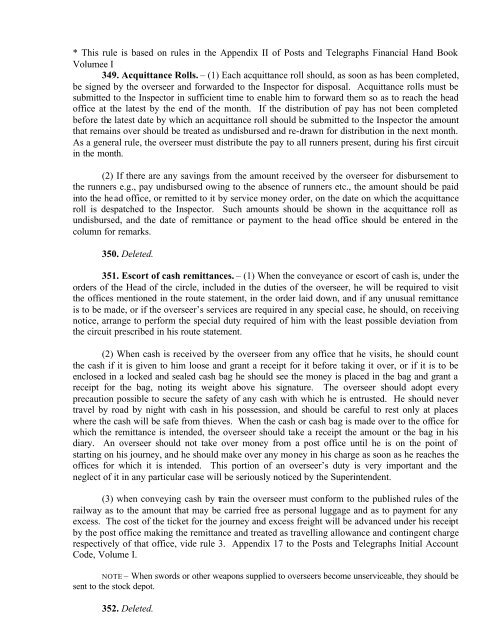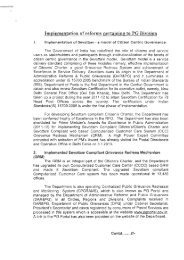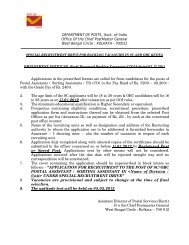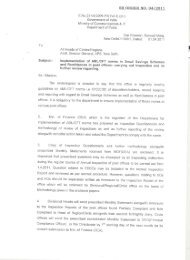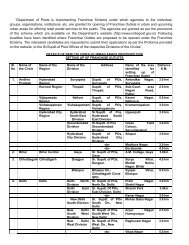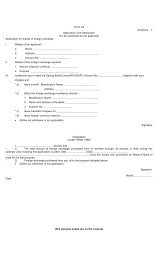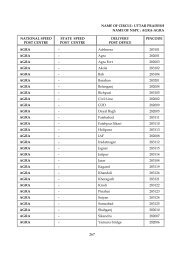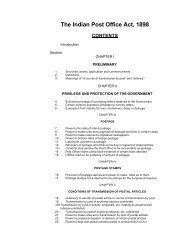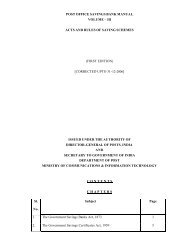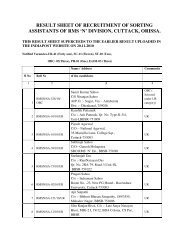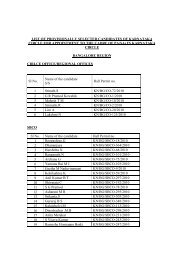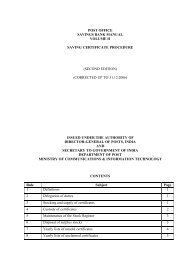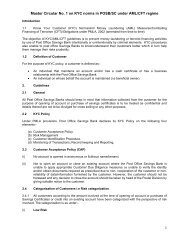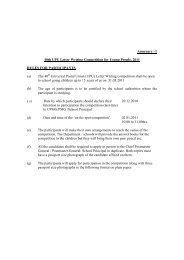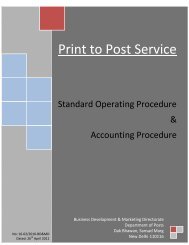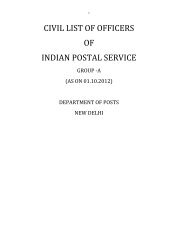Postal Manual Vol. VIII - India Post
Postal Manual Vol. VIII - India Post
Postal Manual Vol. VIII - India Post
Create successful ePaper yourself
Turn your PDF publications into a flip-book with our unique Google optimized e-Paper software.
* This rule is based on rules in the Appendix II of <strong>Post</strong>s and Telegraphs Financial Hand Book<br />
<strong>Vol</strong>umee I<br />
349. Acquittance Rolls. – (1) Each acquittance roll should, as soon as has been completed,<br />
be signed by the overseer and forwarded to the Inspector for disposal. Acquittance rolls must be<br />
submitted to the Inspector in sufficient time to enable him to forward them so as to reach the head<br />
office at the latest by the end of the month. If the distribution of pay has not been completed<br />
before the latest date by which an acquittance roll should be submitted to the Inspector the amount<br />
that remains over should be treated as undisbursed and re-drawn for distribution in the next month.<br />
As a general rule, the overseer must distribute the pay to all runners present, during his first circuit<br />
in the month.<br />
(2) If there are any savings from the amount received by the overseer for disbursement to<br />
the runners e.g., pay undisbursed owing to the absence of runners etc., the amount should be paid<br />
into the head office, or remitted to it by service money order, on the date on which the acquittance<br />
roll is despatched to the Inspector. Such amounts should be shown in the acquittance roll as<br />
undisbursed, and the date of remittance or payment to the head office should be entered in the<br />
column for remarks.<br />
350. Deleted.<br />
351. Escort of cash remittances. – (1) When the conveyance or escort of cash is, under the<br />
orders of the Head of the circle, included in the duties of the overseer, he will be required to visit<br />
the offices mentioned in the route statement, in the order laid down, and if any unusual remittance<br />
is to be made, or if the overseer’s services are required in any special case, he should, on receiving<br />
notice, arrange to perform the special duty required of him with the least possible deviation from<br />
the circuit prescribed in his route statement.<br />
(2) When cash is received by the overseer from any office that he visits, he should count<br />
the cash if it is given to him loose and grant a receipt for it before taking it over, or if it is to be<br />
enclosed in a locked and sealed cash bag he should see the money is placed in the bag and grant a<br />
receipt for the bag, noting its weight above his signature. The overseer should adopt every<br />
precaution possible to secure the safety of any cash with which he is entrusted. He should never<br />
travel by road by night with cash in his possession, and should be careful to rest only at places<br />
where the cash will be safe from thieves. When the cash or cash bag is made over to the office for<br />
which the remittance is intended, the overseer should take a receipt the amount or the bag in his<br />
diary. An overseer should not take over money from a post office until he is on the point of<br />
starting on his journey, and he should make over any money in his charge as soon as he reaches the<br />
offices for which it is intended. This portion of an overseer’s duty is very important and the<br />
neglect of it in any particular case will be seriously noticed by the Superintendent.<br />
(3) when conveying cash by train the overseer must conform to the published rules of the<br />
railway as to the amount that may be carried free as personal luggage and as to payment for any<br />
excess. The cost of the ticket for the journey and excess freight will be advanced under his receipt<br />
by the post office making the remittance and treated as travelling allowance and contingent charge<br />
respectively of that office, vide rule 3. Appendix 17 to the <strong>Post</strong>s and Telegraphs Initial Account<br />
Code, <strong>Vol</strong>ume I.<br />
NOTE – When swords or other weapons supplied to overseers become unserviceable, they should be<br />
sent to the stock depot.<br />
352. Deleted.


